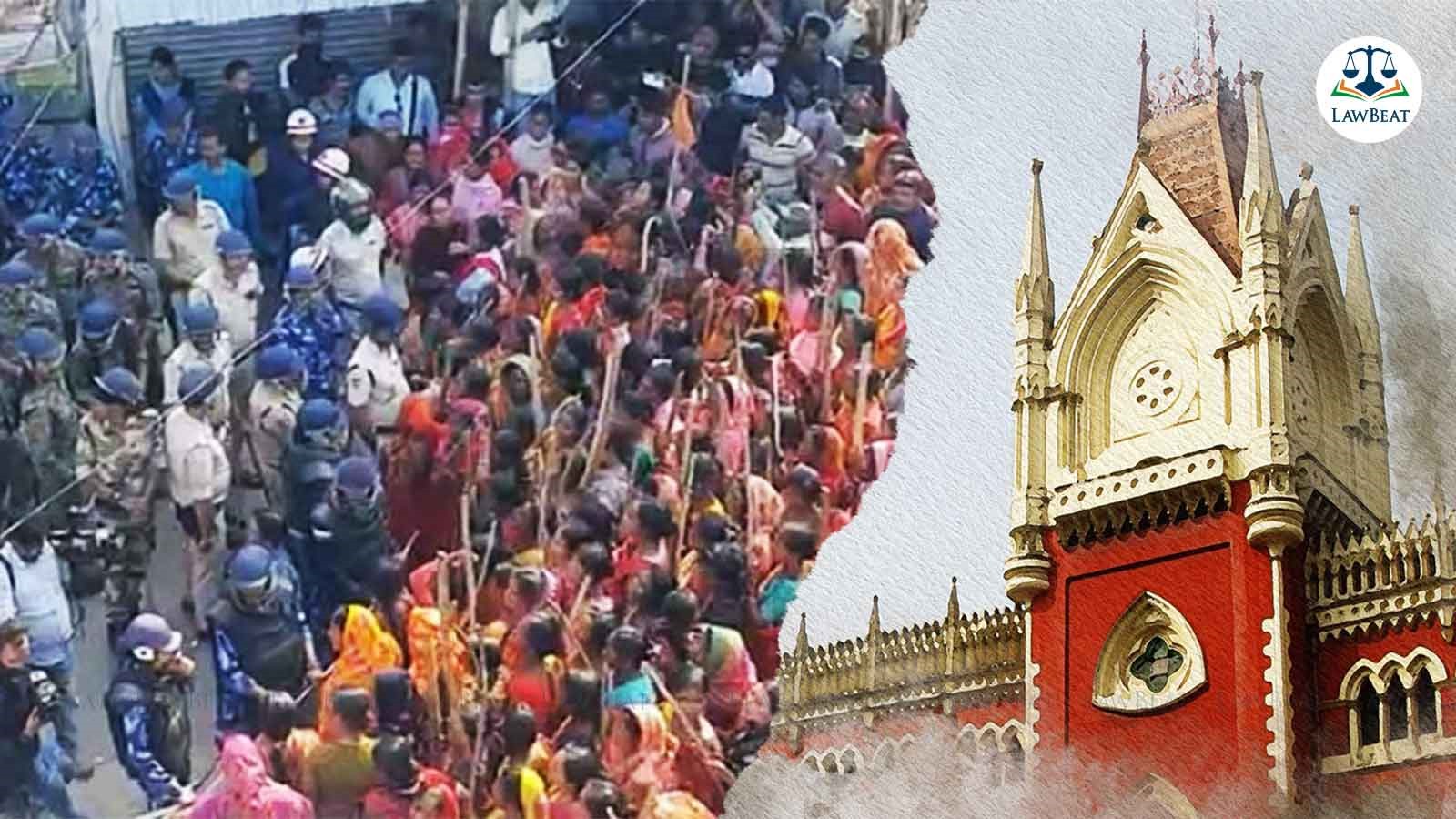Calcutta HC Directs CBI Probe into Allegations of Crimes Against Women and Land Grabbing in Sandeshkhali

Previously, the same bench comprising the CJ Sivagnanam and Justice Bhattacharya, had ordered the State Police to stay their ongoing investigation into the incident until a decision is made on ‘Whether the State Police or the Central Bureau of Investigation (CBI) should continue the probe?’
In a significant development, the Calcutta High Court today ordered a CBI investigation into allegations of crimes against women and forcible land grabbing in West Bengal's Sandeshkhali. The decision came on a batch of petitions amidst protests and mounting concerns over these issues in the region.
A division bench presided by Chief Justice T S Sivagnanam and Justice Hiranmay Bhattacharyya, emphasising the gravity of the situation, directed the Central Bureau of Investigation (CBI) to conduct a thorough inquiry into the alleged illegal conversion of agricultural land into water bodies for pisciculture. This investigation will be closely monitored by the court, ensuring transparency and accountability.
The directive follows a series of events, including an attack on Enforcement Directorate (ED) officials by a mob in Sandeshkhali on January 5 this year. The officials were assaulted during a search operation at the premises of Shajahan Sheikh, a suspended Trinamool Congress leader implicated in a ration distribution scam.
Responding to Public Interest Litigations (PILs) and concerns raised by the National Commission For Scheduled Tribes, the court deemed it imperative to launch a comprehensive investigation. Allegations of rape, sexual exploitation, and forcible land grabbing have instilled fear and insecurity among the local populace.
Previously, the same bench had ordered the State Police to stay their ongoing investigation into the incident until a decision is made on ‘Whether the State Police or the Central Bureau of Investigation (CBI) should continue the probe?’
During the proceedings earlier, the Advocate General (AG) for West Bengal, Kishore Datta, presented arguments opposing the transfer of the investigation from the State Police to the CBI, stating that the State Police are fully competent to handle the case.
The AG had also contended that “a public interest litigation cannot be a political interest or personal interest litigation and in all these cases there is a gross display of personal interest and the court should not be swayed by the crocodile tears which are shed before the court and an attempt is made to misguide this court.”
In this regard, the court held that “the said submissions made by the learned Advocate General does not merit acceptance.” The court asserted that a suo motu proceeding was necessary in the matter, considering the numerous facts that had come to light and required thorough investigation to ascertain the true state of affairs.
The court observed, “it is necessary in the interest of justice and fair play and for expeditious consideration of the various complaints and allegations an impartial enquiry is required to be conducted. The state has to provide the required support to the said agency to be appointed by us to enquire into the matter.”
The court emphasising the importance of holding offenders accountable, restoring land to its original state, and ensuring that victims are adequately compensated, stated that, “The mere fact that the Government has taken steps to revert the land back to the rightful owner does not efface or mitigate the offences of land grabbing. The persons who are responsible for such offences of land grabbing have to be brought to books and to be punished in the manner known to law.”
The court also highlighted the involvement of state machinery in the process, such as through mutation in revenue records, which suggested the state's complicity or responsibility.
In furtherance, the court directed the CBI to review copies of affidavits filed by petitioners containing allegations and to proceed in accordance with the law if any complaints disclose cognizable offences. The CBI has also been tasked with investigating allegations of forcible land grabbing in the locality, with instructions to take appropriate action if these allegations are found to have a credible basis.
The court granted the CBI broad powers to gather information from various entities, including government authorities, NGOs, and individuals, to aid in the investigation.
Addressing specific allegations of illegal changes in ownership names in revenue records and the unauthorized conversion of agricultural lands, the court directed the CBI to conduct a thorough inspection of revenue records and physical examination of the plots allegedly converted for pisciculture.
Emphasising its oversight role, the court pledged to monitor the entire investigation process and issue further orders as necessary based on the reports filed by the CBI.
To ensure the safety of victims and witnesses, the court directed the CBI to issue necessary directives to the State Police on providing protection without strict adherence to the procedures outlined in the Witness Protection Scheme.
A comprehensive report based on these findings is to be submitted on the next hearing scheduled for May 02, 2024.
In a move to enhance security measures, the court has also directed the District Magistrate, North 24 Parganas, the Superintendent of Police, and local bodies to collaborate in installing CCTV cameras in relevant and sensitive areas of Sandeshkhali. It mandated that these installations be completed within 15 days, with necessary funds sanctioned by the State Government. Additionally, the installation of LED street lights was expedited within the same timeframe.
Cause Title: In Re: Court on its own motion v The State of West Bengal [WPA 4011 OF 2024] and connected matters.
